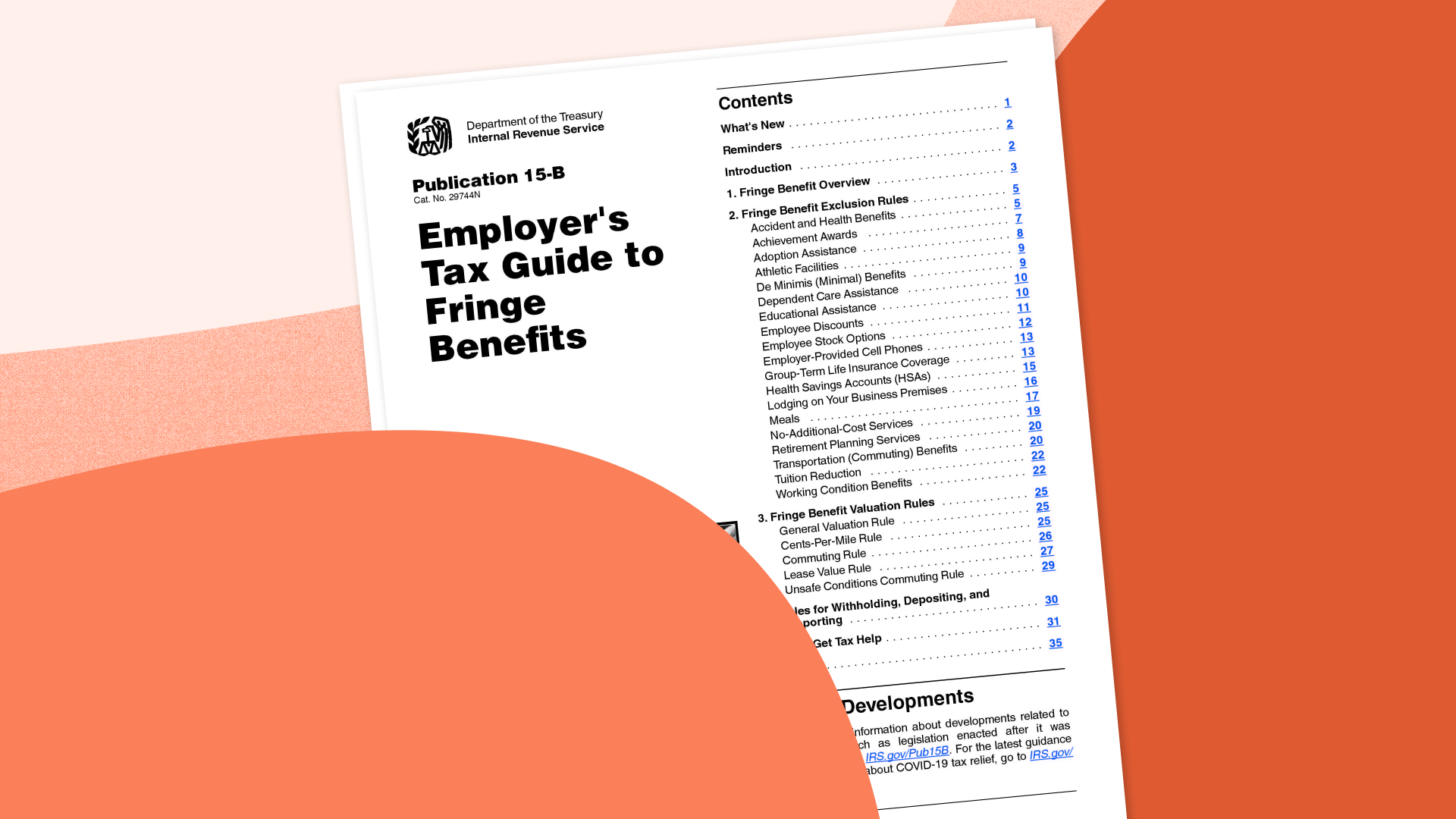What Are Payroll Taxes?
'Employer Payroll Taxes
Importance of Payroll Tax Compliance
How Payroll Taxes Are Calculated
Filing and Reporting Payroll Taxes
Common Payroll Tax Challenges
How to Ensure Payroll Tax Compliance
The Impact of Payroll Taxes on Employees
The Future of Payroll Taxes
How Justworks Can Help
Running a small business comes with a lot of responsibilities, and one of the most important (and sometimes confusing) duties is handling payroll taxes. Whether you’re just starting or have been in business for a while, staying on top of payroll taxes is key to ensuring compliance and keeping your team happy. This blog post will break down payroll taxes, explain the roles of both employees and employers, and share some tips on staying compliant while avoiding common pitfalls.
What Are Payroll Taxes?
Payroll taxes are the taxes that are withheld from an employee’s paycheck (employee payroll taxes) and the taxes that employers are responsible for paying on behalf of their employees (employer payroll taxes). These taxes help fund programs like Social Security, Medicare, unemployment benefits, and more.
Employer Payroll Taxes
As a business owner, you also have to pay a portion of payroll taxes on behalf of your employees. This includes:
Federal Insurance Contributions Act (FICA) Taxes: This includes Social Security and Medicare taxes.
Federal Unemployment Tax Act (FUTA) Taxes: This tax funds unemployment compensation programs.
State Unemployment Taxes (SUTA): Similar to FUTA, but at the state level.
Local Payroll Taxes: These can vary depending on the locality.
Employee Payroll Taxes
Employees also contribute to payroll taxes, primarily through FICA taxes:
Social Security Tax: This is 6.2% of the employee's wages, up to a certain limit.
Medicare Tax: This is 1.45% of all wages, with an additional 0.9% for high earners.
Importance of Payroll Tax Compliance
Payroll compliance is about more than just paying taxes on time—it’s also a key part of your legal obligations as a business owner. Here’s why it matters:
Legal Obligations: Failing to comply with payroll tax laws can lead to hefty fines, penalties, or even legal action. Government agencies like the IRS and state tax departments don’t take payroll tax issues lightly, so ensuring you’re following the rules is crucial.
Employee Benefits: Payroll taxes help fund programs that directly benefit your employees, like Social Security, Medicare, disability, and unemployment insurance. Compliance ensures your employees get what they’re entitled to, which boosts morale and helps retain talent.
Business Reputation: Word spreads quickly, especially in small communities. Staying compliant builds trust with employees, customers, and the broader business community. Falling behind on payroll taxes can harm your reputation and make it harder to grow your business.
How Payroll Taxes Are Calculated
The process of calculating payroll taxes can feel like a daunting task, but understanding the basics can simplify things.
Gross vs. Net Pay: Payroll taxes are calculated based on gross pay, which is the total amount an employee earns before any deductions. Net pay is what an employee takes home after all payroll taxes and other deductions (such as health insurance premiums or retirement contributions) have been subtracted.
Employer Contributions: As mentioned earlier, employers also have to contribute to certain payroll taxes, including matching the employee’s Social Security and Medicare tax contributions. For example, if an employee pays 6.2% for Social Security, the employer also pays 6.2%. You’ll also be responsible for federal and state unemployment taxes (FUTA and SUTA).
Additional Taxes: Depending on your state, you may also need to handle things like state disability insurance, worker’s compensation insurance, and local payroll taxes. It’s important to be aware of the tax requirements specific to your location.
Filing and Reporting Payroll Taxes
Payroll tax filing isn’t just a one-time event—it’s an ongoing task that requires regular attention. There are a few key things to keep in mind:
Quarterly Filing: Most businesses are required to file payroll taxes quarterly. This means you’ll report your payroll tax withholdings and employer contributions to the IRS and other tax agencies every three months. You must file Form 941 with the IRS every quarter, which reports the total amount of Social Security, Medicare, and federal income taxes withheld.
Annual Filing: In addition to quarterly reports, you’ll also need to file annual payroll tax reports. For example, businesses must file Form W-2 for each employee, summarizing their earnings and tax withholdings for the year as well as Form 940 to report FUTA taxes,
State and Local Reporting: Don’t forget about state and local payroll tax obligations. Each state has its own tax filing requirements, and some local governments may require additional reports, such as city or county payroll tax filings.
Common Payroll Tax Challenges
Payroll taxes can be tricky, and many small business owners face common challenges when managing them.
Misclassification of Employees: One of the biggest mistakes businesses make is misclassifying employees as independent contractors. Misclassification can lead to serious penalties because it affects how payroll taxes are calculated and reported. Independent contractors are responsible for their own taxes, while employers must withhold taxes for employees.
Keeping Up with Tax Rate Changes: Payroll tax rates can change from year to year, especially on the state and local level. Staying informed of changes is crucial for ensuring that you’re calculating and withholding the correct amounts.
Record Keeping: Keeping accurate records is essential for payroll tax compliance. If the IRS ever audits your business, you’ll need to provide detailed documentation of your payroll processes, including tax filings and withholdings.
How to Ensure Payroll Tax Compliance
Luckily, you don’t have to handle payroll taxes all on your own. There are several ways to make sure you stay compliant:
Use Payroll Software: Many small business owners use payroll software to automate the process. Software can calculate payroll taxes, file reports, and even issue payments to the appropriate tax agencies. This reduces the risk of errors and saves time.
Hire a Payroll Service: If payroll taxes are too overwhelming to manage in-house, consider hiring a professional payroll service. These companies specialize in payroll tax compliance and can handle everything from filing to payments, allowing you to focus on other areas of your business.
Regular Audits: It’s a good idea to conduct regular audits of your payroll processes to ensure everything is running smoothly. This can help you catch and correct any mistakes before they become bigger issues.
The Impact of Payroll Taxes on Employees
Employees may not always be aware of how payroll taxes affect their paychecks, but these taxes directly fund programs they’ll benefit from.
Take-Home Pay: Payroll taxes directly impact an employee's take-home pay. Understanding how these taxes are calculated can help employees better manage their finances.
Benefits: While payroll taxes reduce take-home pay, they fund essential benefits like Social Security and Medicare, which provide financial security in retirement and during periods of disability or medical need.
The Future of Payroll Taxes
Payroll taxes are likely to evolve in the coming years, especially as discussions about funding Social Security and Medicare continue.
Potential Changes: Payroll tax rates and regulations can change due to new legislation or economic conditions. Staying informed about potential changes can help you prepare for future payroll tax obligations. Some experts predict changes to tax rates or new types of payroll taxes to fund other social programs like paid family leave.
Technological Advancements: Advancements in technology are making payroll tax compliance more accessible than ever. Automated systems and software can streamline the process, reducing the burden on employers and ensuring accuracy.
How Justworks Can Help
Payroll taxes are an essential part of running a business, and staying compliant is crucial for avoiding penalties and building a strong business reputation. If managing payroll taxes still feels like too much, Justworks can help handle payroll, tax filings, and compliance issues, freeing you to focus on growing your business. We provide expertise and take on the administrative burden, ensuring you stay on top of your tax responsibilities without the hassle. Get started with Justworks today!
Check out our newsletter
Monthly tips on running a business in your inbox.
Check out our newsletter

Learn more with Justworks’ Resources
Scale your business and build your team — no matter which way it grows. Access the tools, perks, and resources to help you stay compliant and grow in all 50 states.






